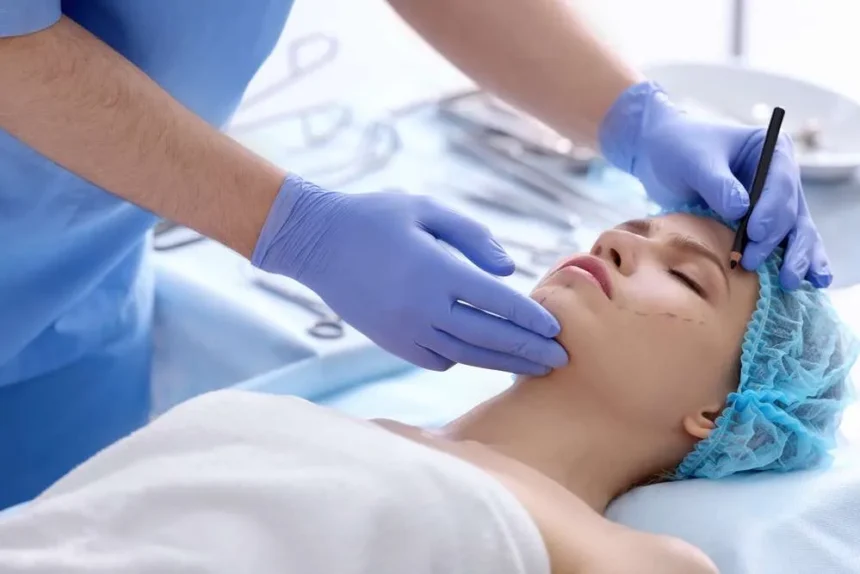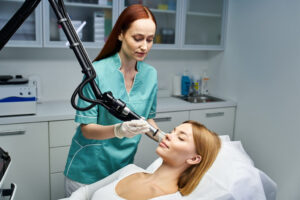Plastic surgery enhances your appearance and may improve vision or breathing, as seen in cases such as blepharoplasty and rhinoplasty. Each surgery has unique aftercare instructions tailored to your specific needs. Your plastic surgeon also schedules follow-up care to track your progress and address any concerns you might have. Here are a few reasons why follow-up care with your surgeon is necessary:
Support Proper Healing
Plastic surgery involves making incisions that naturally go through all stages of the healing process. You may notice initial bruising and swelling, which gradually improve as scars form. Follow-up appointments help monitor your progress and make sure your recovery is on track. Discuss with your surgeon what to expect during each phase of healing and which signs should be addressed promptly.
During follow-up meetings, your plastic surgeon may assess the wounds, remove sutures, or check for signs of infection. These proactive assessments help identify issues, such as delayed healing or asymmetry, allowing surgeons to make early adjustments. Proactive maintenance helps prevent minor issues from escalating to major complications, allowing you to heal properly.
Manage Post-Surgery Risks
Cosmetic procedures, including breast augmentation and rhinoplasty, involve careful surgical techniques and a structured recovery process. Post-operative appointments allow your surgeon to monitor healing, assess symmetry, and track tissue changes to make sure results are progressing as expected. Regular follow-up visits also provide opportunities to manage dressings and gently remove excess fluid. The doctor may also recommend compression garments when needed. Surgeons adjust prescriptions and offer guidance on cleansing and skincare routines, helping optimize healing and overall outcomes.
Improve Aesthetic Outcomes
Your plastic surgery outcomes depend on several factors, including your adherence to post-operative care instructions and your lifestyle after surgery. Follow-up appointments allow your surgeon to evaluate the changes over time and make timely adjustments to maintain the results. Adjustments may involve minor skin-tightening procedures, non-surgical treatments such as fillers, and massage therapies to enhance body contouring. Consult your surgeon before taking any measures to address changes.
Attending follow-up meetings allows you to understand the normal phases of recovery, which involve bruising, swelling, and settling. Your surgeon also explains long-term changes, identifying the ideal time to schedule maintenance procedures. Maintenance adjustments improve your appearance, addressing natural changes caused by aging and other factors. Surgeons also have the opportunity to review their work and note necessary revisions.
Tracking Long-Term Effects
Plastic surgery can impact overall health and physical function long after the initial healing period. Procedures like rhinoplasty not only refine appearance but can enhance airflow and breathing. Liposuction alters weight distribution, prompting the muscles and skin to adapt, while blepharoplasty can enhance vision and eyelid function. Reconstructive surgeries restore lost abilities, such as joint mobility or facial muscle control.
Post-operative visits allow your surgeon to monitor these functional changes, track nerve sensitivity, and adjust recovery strategies to support optimal adaptation. Surgeons can also evaluate posture, balance, and the way your body moves as it adjusts to structural changes. This helps you maintain any long-term benefits you gained from the procedure.
Enhancing Future Plans
Follow-up care lays the foundation for planning future treatments and supporting long-term results. These appointments give your surgeon detailed insight into how your body adapts after surgery, helping guide decisions for any additional or staged procedures. Regular check-ins also provide an opportunity to discuss adjustments or potential reversals and to assess overall health before undergoing further surgery. Surgeons can use this time to refine recovery strategies and address concerns early, helping you maintain your body’s readiness and promoting safer, more effective outcomes over time.
Speak to a Plastic Surgeon Today
Plastic surgery can enhance your appearance and even provide functional benefits, such as improving your breathing, vision, and movement. Whether you get a facelift or breast augmentation, strictly follow your surgeon’s aftercare instructions and appointments for enhanced results. Contact a plastic surgeon today to find out more about their services.















